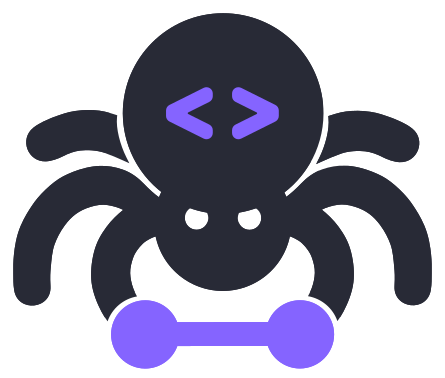ScrapeGraphAI is a web scraping python library that uses LLM and direct graph logic to create scraping pipelines for websites and local documents (XML, HTML, JSON, etc.).
Just say which information you want to extract and the library will do it for you!
The reference page for Scrapegraph-ai is available on the official page of pypy: pypi.
pip install scrapegraphaiyou will also need to install Playwright for javascript-based scraping:
playwright installNote: it is recommended to install the library in a virtual environment to avoid conflicts with other libraries 🐱
Official streamlit demo:
Try it directly on the web using Google Colab:
Follow the procedure on the following link to setup your OpenAI API key: link.
The documentation for ScrapeGraphAI can be found here.
Check out also the docusaurus documentation.
There are three main scraping pipelines that can be used to extract information from a website (or local file):
SmartScraperGraph: single-page scraper that only needs a user prompt and an input source;SearchGraph: multi-page scraper that extracts information from the top n search results of a search engine;SpeechGraph: single-page scraper that extracts information from a website and generates an audio file.
It is possible to use different LLM through APIs, such as OpenAI, Groq, Azure and Gemini, or local models using Ollama.
Remember to have Ollama installed and download the models using the ollama pull command.
from scrapegraphai.graphs import SmartScraperGraph
graph_config = {
"llm": {
"model": "ollama/mistral",
"temperature": 0,
"format": "json", # Ollama needs the format to be specified explicitly
"base_url": "http://localhost:11434", # set Ollama URL
},
"embeddings": {
"model": "ollama/nomic-embed-text",
"base_url": "http://localhost:11434", # set Ollama URL
},
"verbose": True,
}
smart_scraper_graph = SmartScraperGraph(
prompt="List me all the projects with their descriptions",
# also accepts a string with the already downloaded HTML code
source="https://perinim.github.io/projects",
config=graph_config
)
result = smart_scraper_graph.run()
print(result)The output will be a list of projects with their descriptions like the following:
{'projects': [{'title': 'Rotary Pendulum RL', 'description': 'Open Source project aimed at controlling a real life rotary pendulum using RL algorithms'}, {'title': 'DQN Implementation from scratch', 'description': 'Developed a Deep Q-Network algorithm to train a simple and double pendulum'}, ...]}We use Groq for the LLM and Ollama for the embeddings.
from scrapegraphai.graphs import SearchGraph
# Define the configuration for the graph
graph_config = {
"llm": {
"model": "groq/gemma-7b-it",
"api_key": "GROQ_API_KEY",
"temperature": 0
},
"embeddings": {
"model": "ollama/nomic-embed-text",
"base_url": "http://localhost:11434", # set ollama URL arbitrarily
},
"max_results": 5,
}
# Create the SearchGraph instance
search_graph = SearchGraph(
prompt="List me all the traditional recipes from Chioggia",
config=graph_config
)
# Run the graph
result = search_graph.run()
print(result)The output will be a list of recipes like the following:
{'recipes': [{'name': 'Sarde in Saòre'}, {'name': 'Bigoli in salsa'}, {'name': 'Seppie in umido'}, {'name': 'Moleche frite'}, {'name': 'Risotto alla pescatora'}, {'name': 'Broeto'}, {'name': 'Bibarasse in Cassopipa'}, {'name': 'Risi e bisi'}, {'name': 'Smegiassa Ciosota'}]}You just need to pass the OpenAI API key and the model name.
from scrapegraphai.graphs import SpeechGraph
graph_config = {
"llm": {
"api_key": "OPENAI_API_KEY",
"model": "gpt-3.5-turbo",
},
"tts_model": {
"api_key": "OPENAI_API_KEY",
"model": "tts-1",
"voice": "alloy"
},
"output_path": "audio_summary.mp3",
}
# ************************************************
# Create the SpeechGraph instance and run it
# ************************************************
speech_graph = SpeechGraph(
prompt="Make a detailed audio summary of the projects.",
source="https://perinim.github.io/projects/",
config=graph_config,
)
result = speech_graph.run()
print(result)The output will be an audio file with the summary of the projects on the page.
Feel free to contribute and join our Discord server to discuss with us improvements and give us suggestions!
Please see the contributing guidelines.
Check out the project roadmap here! 🚀
Wanna visualize the roadmap in a more interactive way? Check out the markmap visualization by copy pasting the markdown content in the editor!
If you have used our library for research purposes please quote us with the following reference:
@misc{scrapegraph-ai,
author = {Marco Perini, Lorenzo Padoan, Marco Vinciguerra},
title = {Scrapegraph-ai},
year = {2024},
url = {https://github.com/VinciGit00/Scrapegraph-ai},
note = {A Python library for scraping leveraging large language models}
}
| Contact Info | |
|---|---|
| Marco Vinciguerra |  |
| Marco Perini |  |
| Lorenzo Padoan |  |
ScrapeGraphAI is licensed under the MIT License. See the LICENSE file for more information.
- We would like to thank all the contributors to the project and the open-source community for their support.
- ScrapeGraphAI is meant to be used for data exploration and research purposes only. We are not responsible for any misuse of the library.





